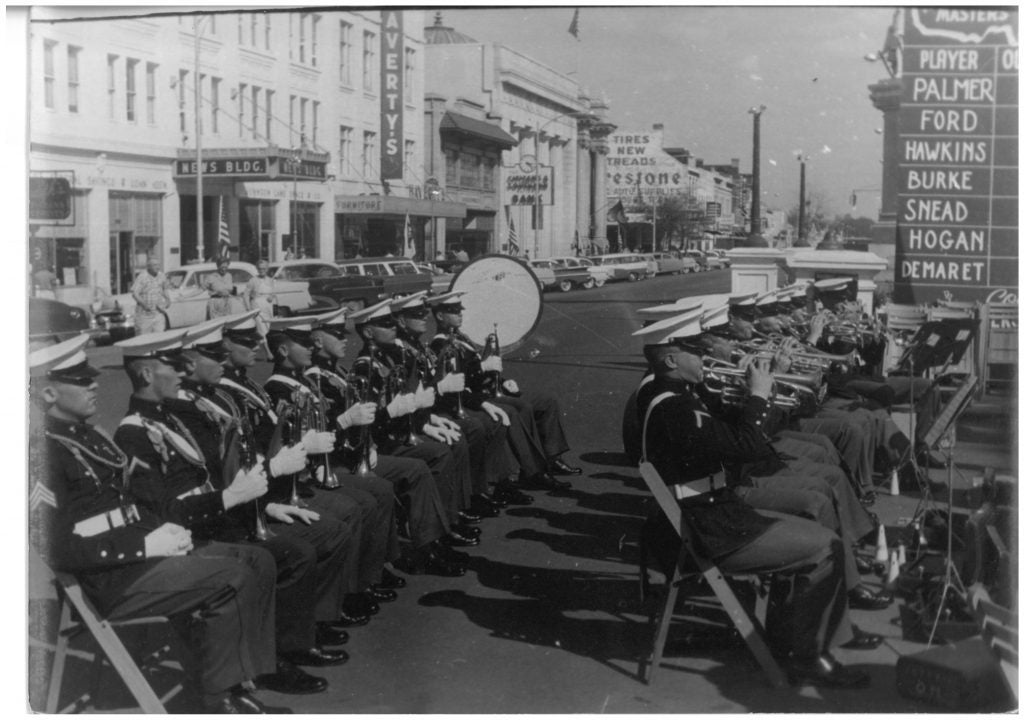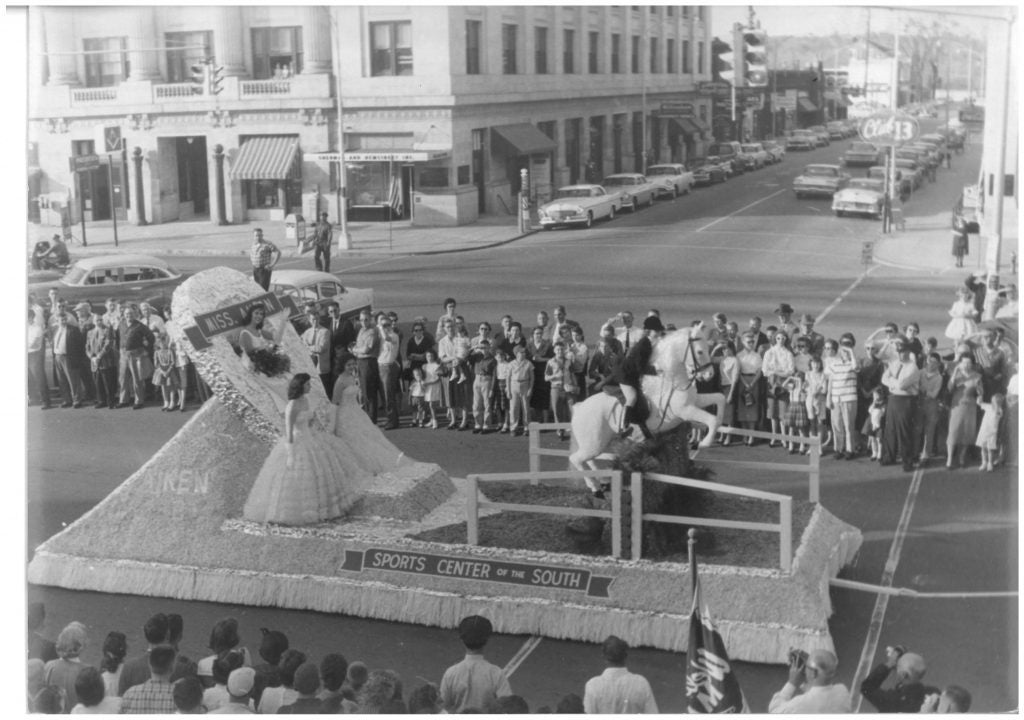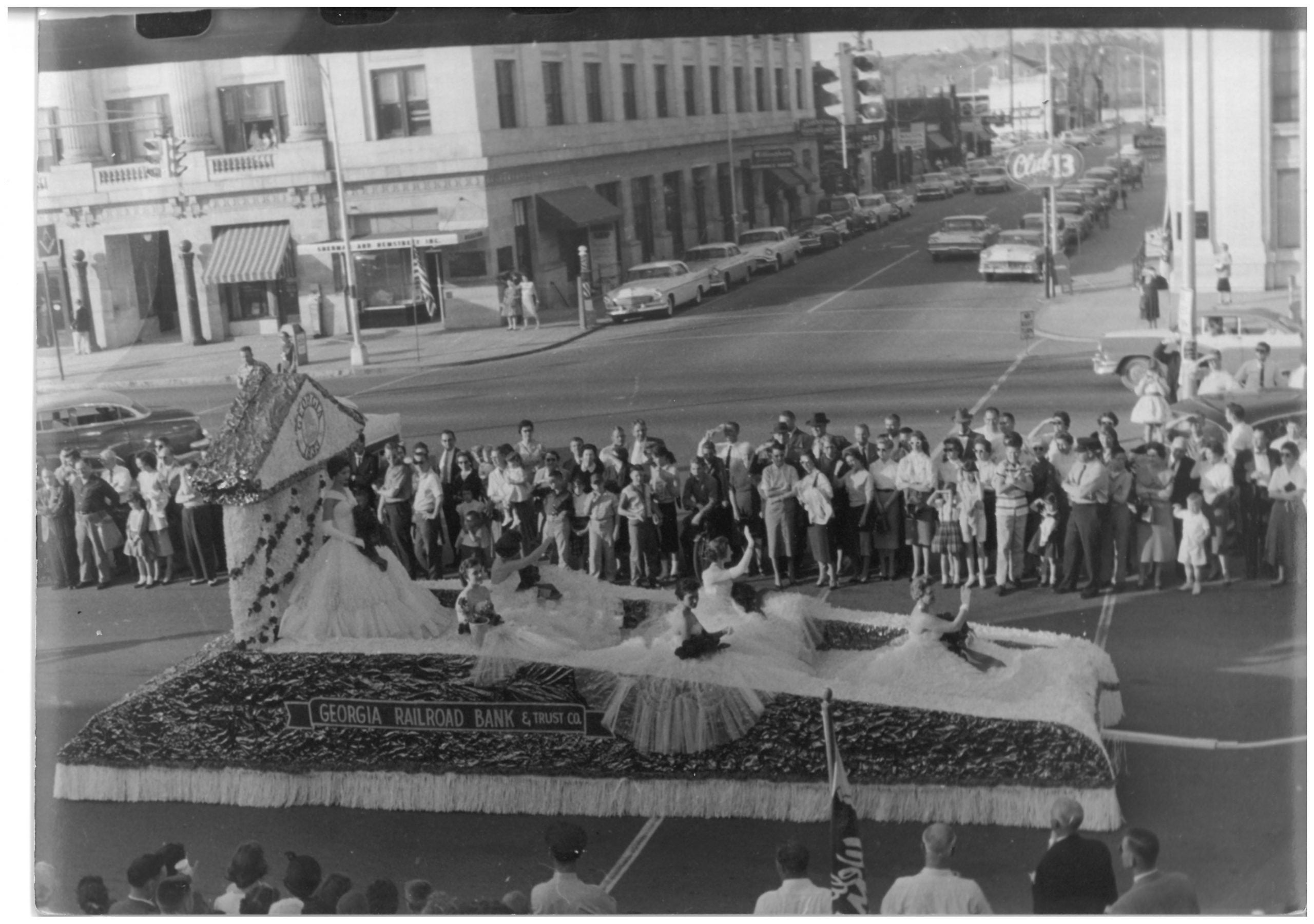Arguably, the Masters Tournament put the city of Augusta on the map, but the citizens of Augusta also helped turn the tournament into a world sensation.
When the Masters Tournament was first played in 1934, it was a small affair. At the time, golf was considered by many as a sport for the elite, and the textile workers in Harrisburg and farmers in Columbia County took little notice.
However, as time went on, the convergence of famous golfers in the Garden City elevated the tournament from the sports pages to front pages of newspapers throughout the nation.
Business tycoon J.B. Fuqua cited the Masters as one of the reasons he chose Augusta to start his first radio station, WGAC. Fuqua would go to become a member of the storied club, and WGAC still maintains a relationship with the tournaments as the un-official “Tournament Week” radio station.
By the mid-1950s, city leaders saw a way to grow the local economy by embracing the event and getting the community involved, even though the majority of the community had likely never even ventured onto the course.
The Augusta Merchants Association, the Chamber of Commerce and, later, Masters Week Inc., went on yearly campaigns to attract attention by hosting an annual parade and even a beauty pageant at the Bell Auditorium where one lucky young lady was crowned “Miss Golf.”

Nona Zimmerman worked for the Augusta Merchants Association in the early 1960s and helped promote the events.
“At first, my boss came in and asked me to make a list of businesses all throughout the CSRA, and I didn’t even know why we were doing it,” Zimmerman said.
Businesses all over town would purchase “Welcome Masters” signs and would decorate their storefronts in the green and yellow Masters theme, a precursor to the golf carts parked all along Washington Road.
According to Zimmerman, the business community really got involved in promoting the tournament and the parade. Herbert Elliott of Elliott Sons Funeral Home allowed the parade organizers to use his flatbed trailers, normally used for hauling concrete burial liners, as floats.
“We had all these ping pong balls that had a company’s name on them, and we would toss those balls into the crowds, and they could take them to the company or store and get a prize,” Zimmerman said.
In today’s world, getting even a practice round ticket is akin to a Wonka Golden Ticket, but that was not so during the formative years of the tournament. Zimmerman said getting a full week pass was easy to get and cost as little as $15, but many local people attended the tournament without paying anything.
“You could go down to Broad Street, and they were giving the tickets away,” Zimmerman said.

Not only were the ticket policies lax, the rules on the golf course were relatively lax as well.
Historian Doug Herman worked concessions at the Masters in 1955 when he was just a 15-year-old lad. Herman says that officials at the course had no problem with him and his friends drinking beer when they were off duty.
On one occasion, the other boys dared his friend to jump into the pond near the16th hole. The friend took a final sip of his beer and took the dare.
“They didn’t have a problem with us drinking beer, but when my friend, who shall remain nameless, jumped into the pond, the Pinkertons came almost out of nowhere and escorted him off the course,” Herman said.
Speaking of the ponds, during his time as a member of Augusta National, President Dwight D. Eisenhower suggested creating more ponds on the property and stocking the ponds with bass fish, according to Golf Magazine. The pond at the par-3 course bears his name, and fishing was allowed on the property.
Golf greats Sam Sneed and Fuzzy Zoeller were known to spend time fishing Ike’s Pond, but the practice apparently came to an end in 1976. According to Golf Magazine, player Johnny Miller, angled a nine-pound bass out of the pond, and in his zeal to show off his catch, he burst into the clubhouse and interrupted a dinner honoring international players.
After that, fishing on the course during Masters Week became verboten.
A lot has changed over time. The Augusta National was created in the waning years of the city being a tourist draw for wealthy Northerners during winter. Since then, the Masters Tournament has evolved into a worldwide sporting event, and it has always maintained its unique Augusta character.
Scott Hudson is the senior reporter for The Augusta Press. Reach him at scott@theaugustapress.com.










